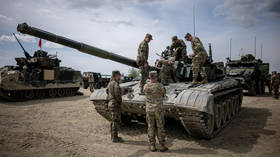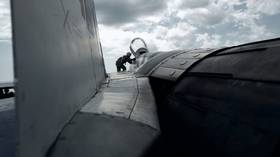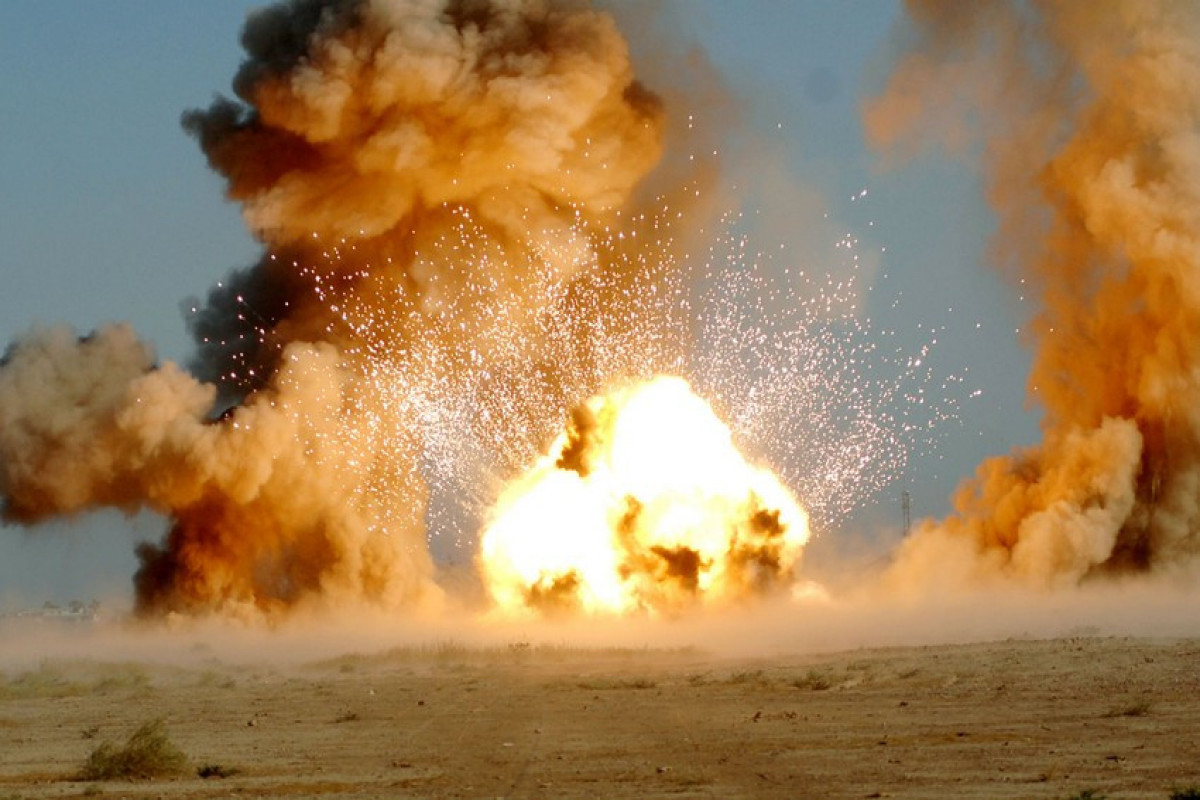17 Jun, 2024 14:49
Deadly explosion rocks Czech military base used to train Ukrainians
An unspecified ammunition blast left one dead and eight injured on Monday, according to army officials
According to preliminary data, the blast involved unspecified munitions at the training facility, military officials said, without providing further details.
“We are dealing with a serious accident in the Libava military training area, where unspecified ammunition exploded, the Defense Ministry wrote on X (formerly Twitter). “We are trying to provide help as quickly as possible with a rescue helicopter involved.”
A spokeswoman for the ambulance service in the Olomouc region, Lucie Mikiskova, told reporters that emergency services were working at the scene.
“Given that this is a military area, I cannot give more detailed information,” she said.
“I can only confirm that we are responding to this incident, we have two crews from Olomouc there and the air ambulance service from another region is also helping,” she added.
Another four servicemen have been taken to the hospital and one soldier was treated at the scene, according to him.
According to information from the website of the Libava Military District, an exercise was scheduled to take place at the facility on Monday and traffic on nearby roads had been restricted.
- Czech instructors at the site have reportedly been teaching Ukrainians how to attack, communicate, and handle weapons.
- Earlier this month, Defense Minister Jana Cernochova said that 4,000 Ukrainian soldiers had been trained in the Czech Republic last year and the same number of troops had been approved for this year.
Deadly explosion rocks Czech military base used to train Ukrainians
The base serves as a training camp for Ukrainian troops.
According to preliminary data, the blast involved unspecified munitions at the training facility, military officials said, without providing further details.. .
Four soldiers with moderate injuries have been transported by helicopter and ambulance to the University Hospital in the nearby city of Olomouc, some 200km east of the capital Prague, local media reported, citing a hospital spokesman.
Another four servicemen have been taken to the hospital and one soldier was treated at the scene, according to him. Military police spokeswoman Katerina Mlynkova told reporters that the injured soldiers "were not foreigners."
The Libava base has served as a training camp for Ukrainian troops since 2022, according to Czech defense officials.
- According to media reports, the Czech Republic has been providing the soldiers with food, accommodation, ammunition and weapons at Libava.
Earlier this month, Defense Minister Jana Cernochova said that 4,000 Ukrainian soldiers had been trained in the Czech Republic last year and the same number of troops had been approved for this year.
Explosion at Czech military base training Ukrainian units
- New Su-34 delivery, but even it can’t offset losses in 2024
- Europe’s daily gamble: Rising odds of US B61 nuclear warheads
- India may eye Su-57 to counter China’s J-20 – ex-IAF officer
In an official statement, the Czech Army disclosed: “We are dealing with a serious incident during military exercises, involving the explosion of unidentified ammunition.” Rescue teams promptly arrived at the scene, and the incident is currently under investigation by military authorities.
The military base in Limbava, located in the Czech Republic, is a significant facility that has been used for various military purposes over the years. Historically, it has served as a training ground and operational hub for both national and international military forces.
During the Cold War, the Limbava base was utilized by the Warsaw Pact forces, including Soviet troops. It played a crucial role in the strategic military planning and operations of the Eastern Bloc. The base’s infrastructure was designed to support a wide range of military activities, from training exercises to logistical support.
In the post-Cold War era, the Limbava base has continued to be an important asset for the Czech military. It has been modernized to accommodate contemporary military needs and has hosted joint exercises with NATO allies. This collaboration underscores the Czech Republic’s commitment to international defense cooperation.
The base is equipped with various facilities, including barracks, training grounds, and maintenance areas. These facilities are used to train soldiers in different aspects of military operations, including combat readiness, tactical maneuvers, and technical skills. The comprehensive training programs at Limbava ensure that personnel are well-prepared for a range of scenarios.
Limbava’s strategic location in Central Europe makes it a valuable asset for both national defense and international military collaborations. Its proximity to other NATO member states facilitates joint training exercises and enhances regional security. The base’s role in these activities highlights its importance in the broader context of European defense strategy.
There is currently no information on what type of ammunition caused the explosion. Assuming these are 155mm artillery shells, let’s see how they can accidentally detonate. An inadvertent operator may unintentionally activate a 155mm artillery round through improper handling or lack of familiarity with the equipment. Artillery rounds, especially those with advanced fuzing mechanisms, require careful and precise handling to ensure safety.

Another possibility is the accidental activation of the round’s electronic fuze. Modern artillery rounds often come equipped with programmable fuzes that can be set to detonate under specific conditions. If an operator mistakenly programs the fuze or fails to follow the correct procedures, the round could be armed and activated unintentionally.
Human error during the maintenance or inspection of the artillery round can also lead to inadvertent activation. For instance, if an operator neglects to follow the safety protocols or misinterprets the instructions, they might inadvertently set off the round.
Environmental factors can also contribute to accidental activation. For example, extreme temperatures, humidity, or electromagnetic interference could potentially affect the sensitive components of the fuze, leading to an unintentional detonation. Proper storage and handling conditions are crucial to mitigate these risks.







No comments:
Post a Comment